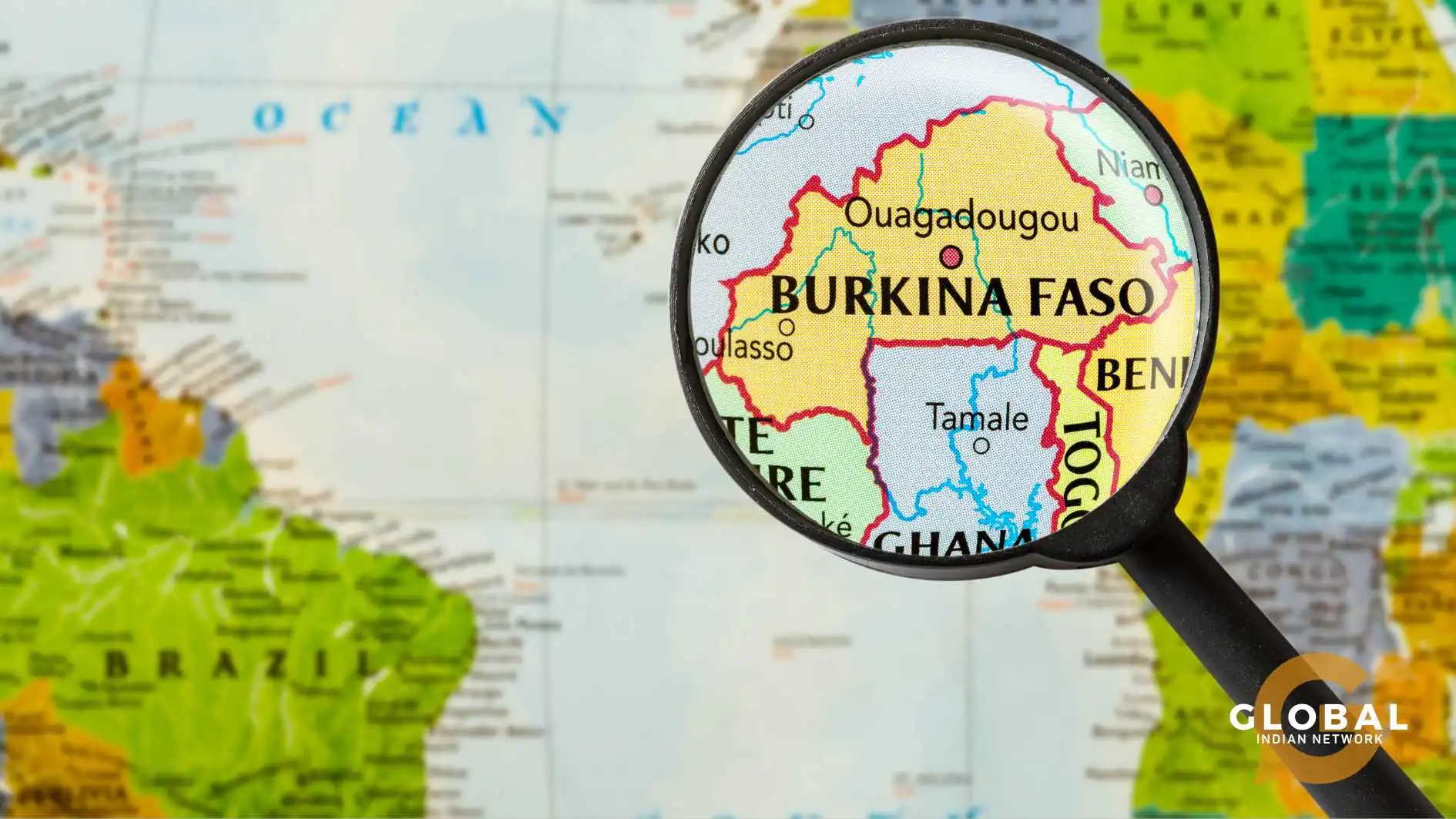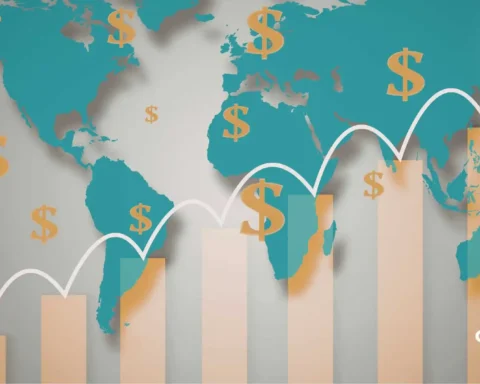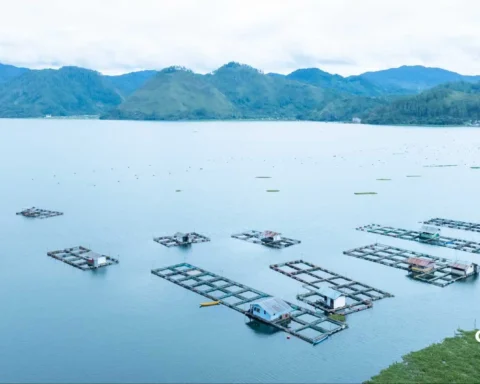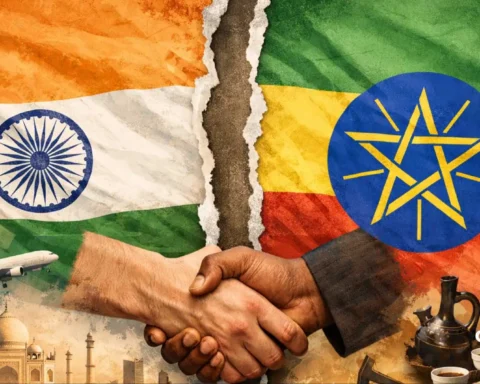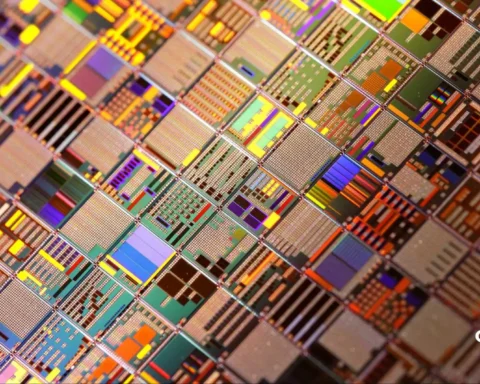In the heart of West Africa, a farmer once stood amid golden fields, proudly showing off a harvest that no longer depended on foreign aid. This scene captures the spirit of Burkina Faso under Captain Ibrahim Traoré—a young, dynamic leader steering his nation towards self-reliance and renewed sovereignty. Traoré’s ambitious reforms resonate far beyond his country’s borders, striking a chord with India’s own journey of independence and development.
As Burkina Faso pivots to food self-sufficiency, resource nationalism, and youth empowerment, exciting new possibilities emerge for India-Africa cooperation. For Indian businesses, policymakers, and the vibrant global Indian diaspora, Traoré’s Burkina Faso is more than an African story; it is a beacon of shared aspirations for bold leadership, economic transformation, and South-South solidarity.
This article explores how these two diverse yet connected continents can bridge gaps to foster partnership and progress in a rapidly changing world.
Table of Contents
Captain Ibrahim Traoré
The leadership of Captain Ibrahim Traoré in Burkina Faso marks a new chapter in Africa’s political and economic trajectory, providing fertile ground for enhanced India-Africa cooperation. His bold reforms centered on self-sustenance, resource sovereignty, youth empowerment, and pan-African solidarity resonate deeply not only within Burkina Faso but also across emerging markets such as India. For Indian businesses, policymakers, and the global Indian diaspora, Traoré’s Burkina Faso presents sizeable opportunities and instructive challenges to deepen collaboration, foster development, and strengthen South-South ties.
Political, Diplomatic and Economic Context
Burkina Faso, under Traoré, is pursuing economic sovereignty and regional integration (with Mali and Niger in the Alliance of Sahel States), seeking alternatives to traditional Western dominance. This aligns well with India’s focus on South-South cooperation and support for emerging economies to shape their futures. India’s diplomatic re-engagement—such as reopening its embassy in Ouagadougou and development lines of credit—facilitates a foundation for closer partnerships. Indian policymakers can explore:
- Expanding technical cooperation through programs like ITEC (Indian Technical and Economic Cooperation) to train Burkinabe youth in agriculture, health, and management
- Supporting joint infrastructure projects drawing on India’s expertise in rural electrification, transport, and sustainable urbanization
- Facilitating trade facilitation and logistics, given Burkina Faso’s landlocked status and position in ECOWAS (Economic Community of West African States)
Economic Partnership Potential
Burkina Faso is a resource-rich country, with vast reserves of gold, manganese, cotton, and other minerals that are strategically important for India’s raw material needs. Bilateral trade between India and Burkina Faso reached over $300 million annually, with India exporting pharmaceuticals, vehicles, machinery, and other essentials, while importing gold, cotton, and cashew nuts, among others. This trade, although still modest, is positioned to grow with the expansion of Burkina Faso’s industrial base and India’s capacity for investment and technology transfer.
Traoré’s government has emphasized nationalization and local value addition, such as building Burkina Faso’s first gold refinery to retain wealth domestically. India’s experience in industrialization, agro-processing, and pharmaceutical production offers practical lessons. Indian companies can partner in:
- Setting up textile parks and agro-processing units, leveraging Burkina Faso’s cotton and agriculture
- Collaborating in mining technology and services to enhance resource extraction and sustainability
- Supplying low-cost solar energy solutions for rural electrification, aligned with Traoré’s push for renewable energy and infrastructure development
Additionally, India’s strength in healthcare delivery and generic medicines meets a critical need, as established by ongoing pharmaceutical exports and health cooperation.

Lessons and Opportunities for the Global Indian Diaspora
Global Indians—whether entrepreneurs, professionals, or youth—are increasingly attuned to stories of assertive leadership and transformative development in emerging markets. Traoré’s Burkina Faso, with its youthful leadership, emphasis on self-reliance, and efforts to reduce dependence on foreign aid and extractive models, deeply resonates with Indian diaspora values rooted in independence and enterprise.
For the Indian diaspora interested in impact investing, social entrepreneurship, and international trade, Burkina Faso offers:
- Launchpads for innovation in agriculture, innovation and skills training, tapping into a new generation of Burkinabe farmers and youth
- Opportunities to collaborate in digital economy initiatives, leveraging mobile banking and e-commerce that Burkina Faso is actively promoting
- Platforms for cultural and educational exchange, highlighting pan-African solidarity and shared experiences of overcoming colonial legacies
Furthermore, the diaspora’s growing presence—estimated at over 1,000 Indian professionals and entrepreneurs already contributing on the ground—forms a trust bridge enabling knowledge transfer and joint ventures. Empowering diaspora youth to engage in India-Africa business ambassador roles could accelerate mutual understanding and investment flow.
Expanding India-Burkina Faso Cooperation Channels
EXIM Bank Lines of Credit
India has extended concessional credit lines to Burkina Faso for infrastructure, energy, and industrial development. These financial instruments enable joint projects in solar electrification, agro-processing, and pharmaceutical manufacturing. As Burkina Faso pushes for local value addition, India’s investment model offers scalable, sustainable solutions.
India-Africa Forum Summit (IAFS)
Burkina Faso actively participates in the India-Africa Forum Summit, a continental platform for dialogue on trade, education, and technology. The summit fosters high-level engagement and policy alignment across diverse sectors. It also reinforces India’s commitment to South-South solidarity and inclusive development.
Pan-African e-Network Project
India’s Pan-African e-Network provides telemedicine and tele-education services to Burkina Faso and other African nations. This digital initiative enhances access to specialized healthcare and remote learning, especially in underserved regions. It exemplifies India’s tech-driven approach to equitable development.
Diaspora-Led Ventures
Over 1,000 Indian professionals and entrepreneurs are already contributing to Burkina Faso’s economic and social landscape. These diaspora networks facilitate trust-based partnerships, cultural exchange, and grassroots innovation. Empowering diaspora youth as business ambassadors could accelerate bilateral cooperation and community impact.
Challenges to Navigate
While the partnership potential is promising, some challenges must be considered:
- Security concerns: Burkina Faso’s ongoing insurgency and regional instability pose business risks and complicate project implementation. This calls for risk mitigation strategies and crisis-sensitive approaches.
- Infrastructure gaps: Despite investments, logistical bottlenecks due to Burkina Faso’s landlocked geography and limited transport facilities may slow trade and supply chain efficiency.
- Political uncertainty: Military rule under Traoré involves balancing popular legitimacy with governance transparency, which may impact regulatory stability for external investors.
- Cultural and language differences: Indian companies and diaspora must be culturally sensitive and adaptable in Francophone West Africa to succeed.
Strategic Takeaways for Indian Stakeholders
- For Businesses: Focus on sectors aligned with Burkina Faso’s development priorities—agriculture, mining, renewable energy, and pharmaceuticals—and look for joint ventures and local partnerships to enhance market entry.
- For Policymakers: Accelerate diplomatic engagement, bolster technical and educational cooperation, and support lines of credit or development assistance fostering sustainable growth and self-sustenance.
- For the Global Indian and Diaspora: Leverage your bicultural position to facilitate trade, entrepreneurship, and social projects that reinforce Burkina Faso’s youth empowerment and industrial ambitions.
Whether you’re an entrepreneur, educator, or cultural curator, Burkina Faso’s story invites you to be more than a spectator—become a stakeholder in shaping South-South solidarity.

Conclusion
Captain Ibrahim Traoré’s Burkina Faso stands as a powerful symbol of new leadership and South-South cooperation, offering India and its global diaspora a rare example of bold vision grounded in self-reliance, youth empowerment, and economic transformation. As Traoré’s administration reshapes Burkina Faso’s future through resource sovereignty, agricultural innovation, and regional solidarity, it opens multiple avenues for India-Africa partnership—fueled by shared values of independence and pragmatic development. Yet, this journey also reminds us of the complexities in building lasting peace and prosperity in a rapidly changing world.
For Indian businesses, policymakers, and diaspora communities, engaging with Burkina Faso now means more than trade or aid—it means joining a broader movement of emerging nations reclaiming their destinies and crafting new models for growth and dignity. India must transcend its role as supplier to become a co-architect of Burkina Faso’s transformation.
In bridging continents, Traoré’s Burkina Faso invites global Indians to be active collaborators in a transformative story of resilience and mutual progress. This offers global Indians a unique opportunity to contribute actively to a cooperation model that is as inspiring as it is pragmatic—bridging continents in pursuit of shared growth and dignity.




